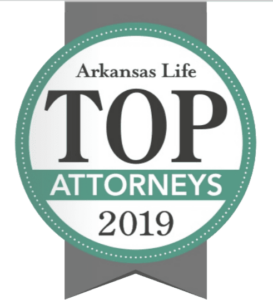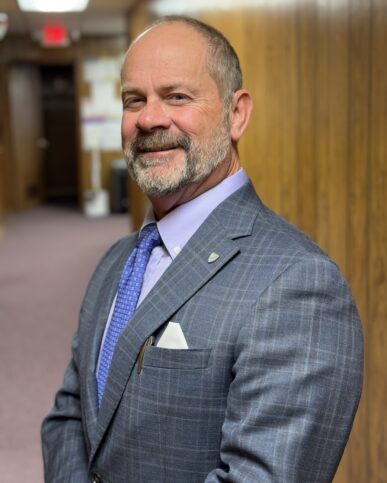FELONY CASE ATTORNEY
FELONIES LAWYER IN LITTLE ROCK, AR
JOHN C. COLLINS
PROTECTING THOSE ARRESTED FOR FELONY OFFENSES IN PULASKI COUNTY
Being arrested for a felony case in Arkansas can be a very serious and stressful situation for you. A felony charge can result in significant penalties, including lengthy prison sentences, hefty fines, and a criminal record that can impact various aspects of your life, such as employment opportunities and housing.
The experience of being arrested can also be traumatic and overwhelming, as it often involves being taken into police custody, fingerprinted, photographed, and interrogated. Additionally, you may be required to spend time in jail while awaiting trial, which can be a difficult and isolating experience.
If you are arrested for a felony case in Arkansas, it is important to seek legal representation as soon as possible. An experienced criminal defense attorney can help protect your rights, provide guidance through the legal process, and work to achieve the best possible outcome in your case. Collins, Collins & Ray can be the difference-maker.
BRIAN W. RAY
EXPERIENCED CRIMINAL DEFENSE IN ARKANSAS WITH OFFICES IN LITTLE ROCK, MOUNTAIN HOME, & TEXARKANA
A long-time Arkansan, Mr. Ray graduated summa cum laude from Henderson State University before earning his Juris Doctor from the William H. Bowen School of Law, where he is qualified for membership to the Who’s Who Among American Law students.
Mr. Ray has earned the respect of both his clients and peers by being named to the Bar Register of Preeminent Lawyers by Martindale-Hubbel for demonstrating the highest possible ethical standards and legal ability. He has earned a rating of “10.0 – Superb” from the online legal directory, Avvo, where peers and clients have posted their rankings in terms of knowledge, trustworthiness, responsiveness, and keeping clients informed.
Brian W. Ray's History As A Criminal Defense Attorney
Brian has nearly thirty years of experience handling serious drug and alcohol cases in nearly all aspects of the criminal justice system.
His work in this area of the law began in 1989 when he became a Certified Police Officer making individual narcotics arrests, and also serving as the “number one entry man” on the SWAT team for drug task force (DTF) “no-knock” warrants. Brian also worked on drug crimes while assigned to the Street Crimes Narcotics Division, and later drafted and executed search warrants while serving as a Detective. Also while serving as an Advanced Certified Police Officer he received many personal commendations and awards and attended Advanced Drug Training from the Drug Enforcement Agency (DEA) & US Department of Justice before graduating Summa Cum Laude from Henderson State University and obtaining his Juris Doctorate from the William H. Bowen School of Law where he was named to membership in the Who’s Who Among American Law Students. While still in law school, Brian worked for the Attorney Generals’ Office where he assisted in working on behalf of law enforcement agencies, and also worked for one of the most prominent attorneys in the state handling drug and alcohol crimes. Later, as a licensed attorney, he served as a Deputy Prosecuting Attorney where he obtained numerous convictions of those arrested for possession of controlled substances. While still a new attorney defending drug cases, Brian represented one of two commercial truck drivers in Federal Court charged with possessing over a ton (2213 pounds) of 82% pure cocaine while traveling on Interstate 30 and across a good part of the country. That cocaine seizure was deemed to be worth an estimated $125,000,000, and still represents one of the largest seizures of cocaine in the State.
When partnering with John & Brandi Collins to form CCR Law Firm in early 2015, Brian began putting his significant law enforcement and criminal justice experience to work for those contacting the firm after being accused of alcohol and drug crimes, including driving while intoxicated (DWI). Because of the firm’s focus, Brian also went to work to systematically further his extensive and advanced training to more heavily focus on these highly specialized cases. With his unique experience gained over decades in the criminal justice system, Brian has now embraced several opportunities to pass his hard-won knowledge along to other attorneys seeking to learn more about drug and alcohol cases after attending many DWI-specific training seminars throughout the country.
Mr. Ray has earned the respect of both his clients and peers by being named to the Bar Register of Preeminent Lawyers by Martindale-Hubbel for demonstrating the highest possible ethical standards and legal ability. And, he has earned a rating of “10.0 – Superb” from the online legal directory, Avvo, where peers and clients have posted their rankings in terms of knowledge, trustworthiness, responsiveness, and keeping clients informed.
Prior to becoming an attorney, Brian served in the United States Marine Corps with First Battalion Fifth Marines and still enjoys telling others of the unit’s motto, which is: “Make Peace or Die”! Additionally, Mr. Ray has worked as a Special Deputy Prosecuting Attorney and is a member of the Masonic Lodge, Veterans of Foreign Wars, The Arkansas Trial Lawyers Association, and The Arkansas Bar Association while serving as an attorney licensed in state and federal courts to include Arkansas, Texas and the United States Supreme Court. He is a regularly sought-out speaker for legal education seminars for attorneys and enjoys winning cases at trial.
OUR ACHIEVEMENTS

National Association of Distinguished Counsel Top One Percent: John Collins 2015, 2020, 2021

AY Magazine’s Arkansas Best Lawyers: Brian Ray 2020, 2021, 2022, 2023, 2024

Super Lawyers (Thomson Reuters): John Collins 2014, 2015, 2018-2021

Arkansas Life Magazine’s – Top Attorneys: John C. Collins 2016, 2019

American Institute of DUI/DWI Attorneys – 10 Best Client Satisfaction: John C. Collins 2016
CASES WE HANDLE
AGGRESSIVE CRIMINAL REPRESENTATION
______
TYPES OF FELONIES
In Arkansas, felony criminal arrests can vary in severity depending on the nature of the crime committed. The state of Arkansas classifies felonies into different categories based on the seriousness of the offense and assigns different penalties accordingly. The classifications and corresponding penalties are as follows:
Class Y Felony: This is the most serious type of felony in Arkansas, and it includes crimes such as capital murder, treason, and certain types of rape. A person convicted of a Class Y felony can be sentenced to life imprisonment without the possibility of parole or death.
Class A Felony: This category includes crimes such as murder, kidnapping, and certain types of robbery. A person convicted of a Class A felony can be sentenced to life imprisonment or a term of imprisonment of not less than six years and not more than 30 years, and may also be subject to a fine of up to $15,000.
Class C Felony: This category includes crimes such as forgery, burglary, and certain types of theft. A person convicted of a Class C felony can be sentenced to a term of imprisonment of not less than three years and not more than 10 years, and may also be subject to a fine of up to $10,000.
Class D Felony: This category includes crimes such as possession of a controlled substance and theft of property. A person convicted of a Class D felony can be sentenced to a term of imprisonment of not less than two years and not more than six years, and may also be subject to a fine of up to $10,000.
It is important to note that the penalties for felony convictions in Arkansas can vary depending on a number of factors, including the defendant’s criminal history and the circumstances of the crime. Additionally, some crimes may be subject to enhanced penalties under certain circumstances, such as crimes committed with a firearm.
Call our Little Rock felony attorneys today at (501) 603-9911 or contact us online.
CLIENT NOT GUILTY OF DWI-DRUGS.
Client 12106 was involved in an accident when the vehicle Client was following swerved and made a sudden lane change. Client reported trying to stop, but could not, and hit a second vehicle that was stopped in the roadway. When questioned at the scene by police officers, …
RESULTS
CLIENT NOT GUILTY OF DWI-DRUGS.
CLIENT WAS FOUND NOT GUILTY OF ALL CHARGES.
CLIENT WAS FOUND NOT GUILTY OF ALL CHARGES.
No, under Arkansas law, a DUI cannot be used to enhance a DWI. For example, if you get a DUI when you are 19 and then get another DUI when you are 20, it will be a DUI-2. But if you then get a DWI when you are 21, that will be a DWI-1, and the DUIs will not be used to enhance the DWI to a DWI-2 or DWI-3.
Yes, a prior DWI can be used to enhance a DUI.
Enhancement for prior DWIs and DUIs during the 10-year look-back period are determined from the date the violations occurred rather than the date of conviction.
The Courts will look back ten years.
SCHEDULE YOUR CONSULTATION TODAY
COLLINS, COLLINS & RAY IS READY TO FIGHT FOR YOU
75+ YEARS OF COMBINED EXPERIENCE
Each of us has worked in public service and has dedicated our professional development to helping others.
ONE-ON-ONE APPROACH
We get to know our clients on a personal level, which is necessary in serious cases that require a vast amount of attention, knowledge, and experience.
WE HAVE YOUR BEST INTEREST IN MIND.
Our main focus is to achieve the best possible outcome for you.
FORMER POLICE OFFICERS, PROSECUTORS, DEFENSE ATTORNEYS, INSURANCE ATTORNEY
We have a wealth of experience in these areas, giving us a unique perspective when handling your case.




